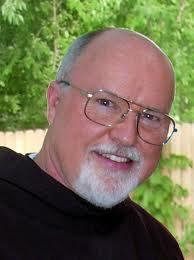
Miguel de Unamuno y Jugo (1864 – 1936) was a Spanish essayist, novelist, poet, playwright and philosopher. His best known, and most important, philosophical essay was The Tragic Sense of Life (1913). His most famous novel was Abel Sanchez: The History of a Passion (1917), a modern exploration of the Cain and Abel story. For Unamuno, art was a way of expressing spiritual problems. His themes were the same in his poetry as in his other fiction: spiritual anguish, the pain provoked by the silence of God, time and death. He summed up his personal creed this way: “My religion is to seek for truth in life and for life in truth, even knowing that I shall not find them while I live.”

Richard Rohr, writing in his most excellent book, Falling Upward (Jossey-Bass, 2011), says “By this clear and honest phrase, I understand Unamuno to mean that life is not, nor ever has been, a straight line forward. According to him, life is characterized much more by exception and disorder that by total or perfect order” (54). Rohr then devotes an entire chapter to this idea about “The Tragic Sense of Life.”

Rohr suggests that quantum physics shows the truth of Unamuno’s view in our time. Most of us, at least in the West, were shaped by a cause and effect way of thinking – an “if-then” worldview. But the truth that we are just now beginning to understand is that “the universe seems to proceed through a web of causes, just as human motivation does, producing ever-increasing diversity, multiplicity, dark holes, dark matter, death and rebirth, loss and renewal in different forms, and yes even violence, the continual breaking of the rules of ‘reason’ that make wise people look for more all-embracing rules and a larger ‘logic’” (54-55).
Over the course of my life of six-plus decades I am learning that my life is much better understood in terms of “exceptions” than “rules of logic.” Everything does not fit, at least from anything I see or understand. Some things seem “right” while others seems wasteful, even out of place. Rohr has prompted me to see this disorder in a new way, a way that honors providence but not as some kind of logical, mathematical formula, which is the way most Calvinists have understood it in the West. When Jesus and Paul tell us to honor “the least of the brothers and sisters” they had in view those people who were on the edges who “tend to reveal the shadow and mysterious side of things” (55). This prompts us to revisit what we’ve called “normal” and “recalibrate” our lives. These “exceptions” keep us humble and searching.
What this means for me is quite simple. Somewhere in my late 50s I stopped trying to find resolution for things in my life that made me anxious or that deeply troubled my logical view of things. There were no universal forms that made everything fit nicely together. Divine providence was not fundamentally about decrees and pre-creational decisions that made my life “make sense.” There was the loving creator and then there was his needy, fallen creature, me. I did not need to resolve everything in my life. I could accept the questions and live more deeply in the grace and mercy of God. But in the end I came to see that this is a high view of God’s providence. Some will say, “How so John?” Because as Richard Rohr rightly concludes, “Jesus did not seem to teach that one size fits all, but instead that his God adjusts to the vagaries and failures of the moment. This ability to adjust to human disorder and failure is named God’s providence or compassion. Every time God forgives us, God is saying that God’s own rules do not matter as much as the relationship that God wants to create with us” (56-57).
Related Posts
Comments
Comments are closed.
My Latest Book!

Use Promo code UNITY for 40% discount!







“Jesus did not seem to teach that one size fits all, but instead that his God adjusts to the vagaries and failures of the moment. This ability to adjust to human disorder and failure is named God’s providence or compassion. Every time God forgives us, God is saying that God’s own rules do not matter as much as the relationship that God wants to create with us.”
I love that quote. I recently listened to a sermon by Greg Boyd that made this very same point. He argued that Paul’s famous passage about potter and clay in Romans 9 (and the Old Testament passages that it hearkens back to) is making precisely that same point. God is not arbitrarily creating some human beings for glory and others for destruction. He is dynamically responding to human decisions and actions, creatively reworking and reshaping his history, to achieve his wonderful salvific purposes without impinging upon human freedom. (If anyone is interested, that sermon is at http://whchurch.org/sermons-media/sermon/does-god-play-favorites )
This is a profound quote that hits me at a time when I’m re-connecting with my Catholic and philosophical roots: “My religion is to seek for truth in life and for life in truth, even knowing that I shall not find them while I live.”
In this Lenten season, I am not giving up something as much as I am seeking to embrace life and people in a deeper way. Realizing that I will stand before God without all the answers is both troubling and comforting, and yet highly exciting because such reality helps me to trust all the more in the gospel Jesus proclaimed.
Brian Karcher liked this on Facebook.